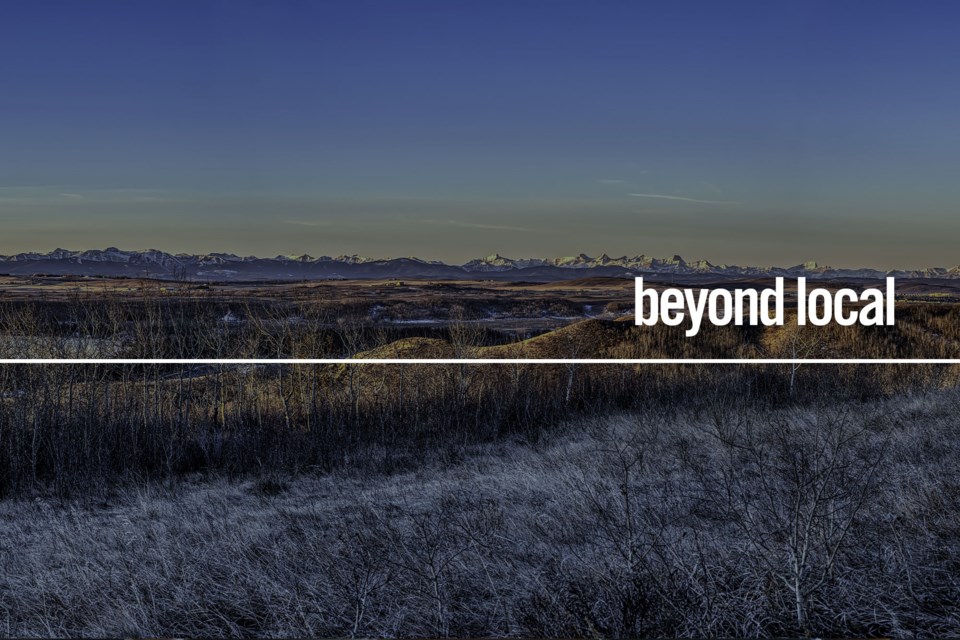(ANNews) - A group of 50 lawyers has written a petition to the Law Society of Alberta (LSA) protesting a mandatory free five-hour training course in Indigenous culture, setting the stage for a special law society meeting on Feb. 6, where the rule that allows the society to mandate certain types of training will be put to a vote.
Meanwhile, on Feb. 2 it was reported that 400 active members of the Law Society of Alberta, along with 124 others, including non-active LA members, legal academics, articling students, law students and legal organizations, have signed a letter to express support for the existing Indigenous cultural competency requirement.
The letter of petition is framed around opposition to the society’s Rule 67.4, which was enacted in 2020 and allows the LSA to establish “continuing professional development requirements” for members. The only requirement implemented since the rule’s inception has been for lawyers to take an Indigenous cultural competency course The Path, or face suspension.
The Truth and Reconciliation Commission’s Call to Action 27 specifically asks the Federation of Law Societies of Canada “to ensure that lawyers receive appropriate cultural competency training, which includes the history and legacy of residential schools, the United Nations Declaration on the Rights of Indigenous Peoples, Treaties and Aboriginal rights, Indigenous law, and Aboriginal–Crown relations.”
The LSA represents 11,100 lawyers across the province. Since the free course launched on April 21, 2021, 26 lawyers have been suspended for failing to take it within 18 months, CBC News reported.
Calgary-based lawyer Roger Song, who initiated the petition, told the CBC that he believes mandating a specific “education program” reminds him of Communist China, where he was born and raised.
“That type of regime is wrong," Song said, denying Canada has any history of discrimination.
Glen Hackett, a Calgary-based lawyer with the right-wing Justice Centre for Constitutional Freedoms, called the course a form of “re-education, or indoctrination, into a particular brand of wokeness called “decolonization” in a blog post for the Dorchester Review, a publication which frequently engages in residential school denialism.
“Through a combination of post-modern ideology and a clumsy, distorted and lopsided history, the main lesson intended for Alberta lawyers seems to be that Canadian history, as it relates to our indigenous people, is entirely one of racism and genocide — evils which somehow remain inherently lodged in Canadian law and legal structures,” he wrote.
David Khan, a Calgary-based lawyer with Ecojustice Canada who focuses on Indigenous Treaty rights, strongly objected to this characterization of the course, arguing that its opponents display “an arrogant entitlement and a willful ignorance of the colonial history of Canada.”
“Lawyers are at the pinnacle of society. We wield unparalleled legal, political and economic power. We have a responsibility to inform ourselves about Canada’s history of colonialism and systemic racism against Indigenous people — a history that inordinately benefits us today — and a duty to address our past, reduce inequality today and foster a fair, just and equitable Canada in the future,” he wrote in an email to Alberta Native News.
Edmonton-based lawyer Avnish Nanda said on Twitter that the LSA is in the midst of a “culture war over what our duty … is to the public interest.”
Song released a statement on Feb. 1, which quoted Leighton Grey, an Indigenous signatory to his petition, at length. Grey resigned from a provincial judicial vetting committee in 2020 after the CBC revealed his pattern of making racist, antisemitic comments online.
In the quote, Grey recommends a book on the TRC, which he says “pays tribute to the many men and women who worked at Indian Residential Schools throughout much of the last century, the vast majority of whom did no harm to any of their children in their case.”
Koren Lightning-Earle, legal director atA Wahkohtowin Law and Governance Lodge at the University of Alberta, told Windspeaker that she “started the ball rolling” on mandating Indigenous cultural competency as the LSA’s Indigenous initiatives liaison.
She said the petition signatories “really need to take a look at why they are not comfortable about taking this training.”
"Sometimes when we learn about things that are foreign to us, it makes us feel uncomfortable. And reconciliation isn’t about putting blame. But your feelings, when you’re learning this information, [are] going to come up, so I think people really need to take some time and explore why they feel that way,” Lightning-Earle said.
Chad Haggerty, a Metis lawyer in Calgary, told the CBC the letter’s signatories “"reflect anti-Indigenous sentiments that are prevalent in Canada,” but added he isn’t sure making the course mandatory outside of law schools is the correct approach.
"You can't mandate common sense or compassion … because opening closed minds is next to impossible,” he said.
The Canadian Bar Association issued a Jan. 30 statement saying regulatory bodies “should have the authority to determine which learning activities are necessary to maintain a high professional standard and the integrity of the legal profession as one that serves the public interest.”
The LSA’s Benchers, or board, wrote a Jan. 31 open letter to its members, urging them to attend the Feb. 6 meeting and vote against the petitioners’ motion, framing the vote as one that challenges the “privilege of self-regulation [and] the expectations that come with self-governance.”
“Policy makers, along with the general public, are paying close attention to whether organizations like the Law Society are focused on the public interest or on member interests,” the letter said.
“If we value self-regulation, we must ensure that we continue to discharge our duties using the lens of the public interest in everything we do, including continuing professional development.



